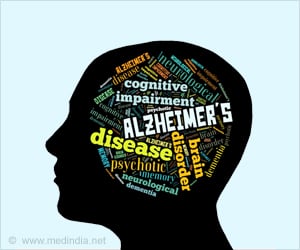
‘Thoracic radiation therapy treatment can have a negative impact on the quality of life. Hence, engaging in more physical activity before treatment may improve symptoms over time.
’
Tweet it Now
Cardiovascular disease is the second leading cause of death in cancer survivors, and it is estimated that 14.5 million cancer patients and survivors have significant cardiovascular risk factors. As more cancer patients are surviving and living longer, more long-term care issues are coming to light. Thoracic radiation therapy is a type of cancer treatment directed at the chest, heart, and torso region and is highly effective in treating certain types of cancers in conjunction with chemotherapy. Thoracic radiation therapy can also cause side effects that can impact the quality of life.Researchers in this study sought to examine thoracic radiation therapy as it impacted the quality of life in breast cancer, lung cancer, and lymphoma patients. The study, conducted from 2015 to 2018, examined 130 patients with either breast cancer, lung cancer, or mediastinal lymphoma who were treated with radiation to the chest. The median age of participants was 54 years, and 78.5% were women.
Researchers collected data before radiation therapy was administered immediately after the patient had received therapy, then five to nine months after the completion of radiation therapy. At each of these three-time points, patients were asked to self-report physical activity, which was assessed using the Godin-Shephard Leisure-Time Physical Activity Questionnaire (GSLTPAQ). Fatigue and shortness of breath were assessed using the Functional Assessment of Chronic Illness Therapy (FACIT) Fatigue and Dyspnea Scales.
Different types of cancer showed different results:
- Lung cancer and lymphoma participants reported an increase in fatigue and dyspnea immediately post-radiation therapy, which later improved. Each 1 Gy of increase in mean heart dose of radiation was associated with decreased GSLTPAQ scores. Additionally, every 10% increase in the volume of heart receiving a radiation dose of 5 Gy was associated with a significant reduction in GSLTPAQ scores.
- Breast cancer participants reported significant increases in physical activity and a decrease in fatigue over time. In this group, there was a non-significant trend toward increased fatigue with increasing radiation dose. However, when accounting for differences in radiation and chemotherapy treatment in these patients, high baseline moderate to vigorous GSLPTAQ scores were associated with improvements in fatigue over time.
"This study suggests that when a patient is treated with thoracic radiation therapy, it can have a negative impact on their quality of life early on. However, engaging in higher levels of physical activity before treatment may help to improve some of these symptoms over time," said lead author Sheela Krishnan, MD, a fellow in the cardiovascular division of the Hospital of the University of Pennsylvania. "This study also confirms that increasing levels of physical activity during treatment are associated with concurrent improvements in quality of life. Though we cannot establish a clear causal relationship from these findings, it does emphasize that physical activity and quality of life are closely linked."
Advertisement
"While our study is a small study, it suggests that high levels of physical activity prior to initiation of radiation therapy for cancer are associated with better physical functioning and quality of life with cancer treatment," Krishnan said. "Additional work is still needed to understand the types and timing of exercises that can bring about the greatest benefit."
Advertisement















